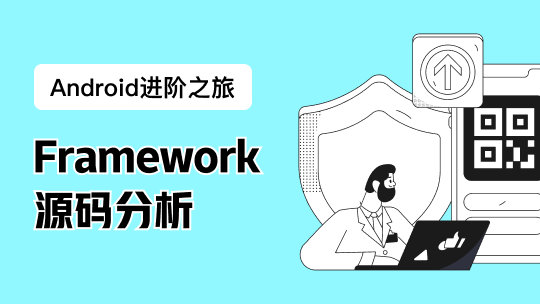系列目录:
- Spring WebFlux运用中的思考与对比
- CompletableFuture与Spring的Sleuth结合工具类
- CommpetableFuture使用anyOf过程中的一些优化思考
- 结合CompletableFuture与Spring的Sleuth结合工具类与allOf以及anyOf
本文基于JDK 11 and JDK 12
按照上一篇内容的分析,我们想在异步代码保留原有的spanId和traceId需要在异步调用前,使用:
Span span = tracer.currentSpan();
try (Tracer.SpanInScope cleared = tracer.withSpanInScope(span)) {
//执行异步代码
}
每次使用CompletableFuture都要这么写的话,太麻烦了,所以,我们继承,使用代理的设计模式,将所有的Async方法都覆盖:
对于JDK11:
import brave.Span;
import brave.Tracer;
import java.util.concurrent.CompletableFuture;
import java.util.concurrent.CompletionStage;
import java.util.concurrent.ExecutionException;
import java.util.concurrent.Executor;
import java.util.concurrent.TimeUnit;
import java.util.concurrent.TimeoutException;
import java.util.function.BiConsumer;
import java.util.function.BiFunction;
import java.util.function.Consumer;
import java.util.function.Function;
import java.util.function.Supplier;
public class CompletableFutureWithSpan<T> extends CompletableFuture<T> {
private final CompletableFuture<T> completableFuture;
private final Tracer tracer;
CompletableFutureWithSpan(CompletableFuture<T> completableFuture, Tracer tracer) {
this.completableFuture = completableFuture;
this.tracer = tracer;
}
private static <T> CompletableFutureWithSpan<T> from(CompletableFuture<T> completableFuture, Tracer tracer) {
return new CompletableFutureWithSpan(completableFuture, tracer);
}
public static <U> CompletableFutureWithSpan<U> supplyAsync(Supplier<U> supplier, Tracer tracer) {
Span span = tracer.currentSpan();
return from(CompletableFuture.supplyAsync(() -> {
try (Tracer.SpanInScope cleared = tracer.withSpanInScope(span)) {
return supplier.get();
}
}), tracer);
}
public static <U> CompletableFutureWithSpan<U> supplyAsync(Supplier<U> supplier, Tracer tracer, Executor executor) {
Span span = tracer.currentSpan();
return from(CompletableFuture.supplyAsync(() -> {
try (Tracer.SpanInScope cleared = tracer.withSpanInScope(span)) {
return supplier.get();
}
}, executor), tracer);
}
public static CompletableFuture<Void> runAsync(Runnable runnable, Tracer tracer) {
Span span = tracer.currentSpan();
return from(CompletableFuture.runAsync(() -> {
try (Tracer.SpanInScope cleared = tracer.withSpanInScope(span)) {
runnable.run();
}
}), tracer);
}
public static CompletableFuture<Void> runAsync(Runnable runnable, Tracer tracer, Executor executor) {
Span span = tracer.currentSpan();
return from(CompletableFuture.runAsync(() -> {
try (Tracer.SpanInScope cleared = tracer.withSpanInScope(span)) {
runnable.run();
}
}, executor), tracer);
}
@Override
public <U> CompletableFutureWithSpan<U> thenApplyAsync(Function<? super T, ? extends U> fn) {
Span span = tracer.currentSpan();
return from(completableFuture.thenApplyAsync(t -> {
try (Tracer.SpanInScope cleared = tracer.withSpanInScope(span)) {
return fn.apply(t);
}
}), this.tracer);
}
@Override
public <U> CompletableFutureWithSpan<U> thenApplyAsync(Function<? super T, ? extends U> fn, Executor executor) {
Span span = tracer.currentSpan();
return from(completableFuture.thenApplyAsync(t -> {
try (Tracer.SpanInScope cleared = tracer.withSpanInScope(span)) {
return fn.apply(t);
}
}, executor), this.tracer);
}
@Override
public CompletableFutureWithSpan<Void> thenAcceptAsync(Consumer<? super T> action) {
Span span = tracer.currentSpan();
return from(completableFuture.thenAcceptAsync(t -> {
try (Tracer.SpanInScope cleared = tracer.withSpanInScope(span)) {
action.accept(t);
}
}), this.tracer);
}
@Override
public CompletableFutureWithSpan<Void> thenAcceptAsync(Consumer<? super T> action, Executor executor) {
Span span = tracer.currentSpan();
return from(completableFuture.thenAcceptAsync(t -> {
try (Tracer.SpanInScope cleared = tracer.withSpanInScope(span)) {
action.accept(t);
}
}, executor), this.tracer);
}
@Override
public CompletableFutureWithSpan<Void> thenRunAsync(Runnable action) {
Span span = tracer.currentSpan();
return from(completableFuture.thenRunAsync(() -> {
try (Tracer.SpanInScope cleared = tracer.withSpanInScope(span)) {
action.run();
}
}), this.tracer);
}
@Override
public CompletableFutureWithSpan<Void> thenRunAsync(Runnable action, Executor executor) {
Span span = tracer.currentSpan();
return from(completableFuture.thenRunAsync(() -> {
try (Tracer.SpanInScope cleared = tracer.withSpanInScope(span)) {
action.run();
}
}, executor), this.tracer);
}
@Override
public <U, V> CompletableFutureWithSpan<V> thenCombineAsync(CompletionStage<? extends U> other, BiFunction<? super T, ? super U, ? extends V> fn) {
Span span = tracer.currentSpan();
return from(completableFuture.thenCombineAsync(other, (t, u) -> {
try (Tracer.SpanInScope cleared = tracer.withSpanInScope(span)) {
return fn.apply(t, u);
}
}), this.tracer);
}
@Override
public <U, V> CompletableFutureWithSpan<V> thenCombineAsync(CompletionStage<? extends U> other, BiFunction<? super T, ? super U, ? extends V> fn, Executor executor) {
Span span = tracer.currentSpan();
return from(completableFuture.thenCombineAsync(other, (t, u) -> {
try (Tracer.SpanInScope cleared = tracer.withSpanInScope(span)) {
return fn.apply(t, u);
}
}, executor), this.tracer);
}
@Override
public <U> CompletableFutureWithSpan<Void> thenAcceptBothAsync(CompletionStage<? extends U> other, BiConsumer<? super T, ? super U> action) {
Span span = tracer.currentSpan();
return from(completableFuture.thenAcceptBothAsync(other, (t, u) -> {
try (Tracer.SpanInScope cleared = tracer.withSpanInScope(span)) {
action.accept(t, u);
}
}), this.tracer);
}
@Override
public <U> CompletableFutureWithSpan<Void> thenAcceptBothAsync(CompletionStage<? extends U> other, BiConsumer<? super T, ? super U> action, Executor executor) {
Span span = tracer.currentSpan();
return from(completableFuture.thenAcceptBothAsync(other, (t, u) -> {
try (Tracer.SpanInScope cleared = tracer.withSpanInScope(span)) {
action.accept(t, u);
}
}, executor), this.tracer);
}
@Override
public CompletableFutureWithSpan<Void> runAfterBothAsync(CompletionStage<?> other, Runnable action) {
Span span = tracer.currentSpan();
return from(completableFuture.runAfterBothAsync(other, () -> {
try (Tracer.SpanInScope cleared = tracer.withSpanInScope(span)) {
action.run();
}
}), this.tracer);
}
@Override
public CompletableFutureWithSpan<Void> runAfterBothAsync(CompletionStage<?> other, Runnable action, Executor executor) {
Span span = tracer.currentSpan();
return from(completableFuture.runAfterBothAsync(other, () -> {
try (Tracer.SpanInScope cleared = tracer.withSpanInScope(span)) {
action.run();
}
}, executor), this.tracer);
}
@Override
public <U> CompletableFutureWithSpan<U> applyToEitherAsync(CompletionStage<? extends T> other, Function<? super T, U> fn) {
Span span = tracer.currentSpan();
return from(completableFuture.applyToEitherAsync(other, t -> {
try (Tracer.SpanInScope cleared = tracer.withSpanInScope(span)) {
return fn.apply(t);
}
}), this.tracer);
}
@Override
public <U> CompletableFutureWithSpan<U> applyToEitherAsync(CompletionStage<? extends T> other, Function<? super T, U> fn, Executor executor) {
Span span = tracer.currentSpan();
return from(completableFuture.applyToEitherAsync(other, t -> {
try (Tracer.SpanInScope cleared = tracer.withSpanInScope(span)) {
return fn.apply(t);
}
}, executor), this.tracer);
}
@Override
public CompletableFutureWithSpan<Void> acceptEitherAsync(CompletionStage<? extends T> other, Consumer<? super T> action) {
Span span = tracer.currentSpan();
return from(completableFuture.acceptEitherAsync(other, t -> {
try (Tracer.SpanInScope cleared = tracer.withSpanInScope(span)) {
action.accept(t);
}
}), this.tracer);
}
@Override
public CompletableFutureWithSpan<Void> acceptEitherAsync(CompletionStage<? extends T> other, Consumer<? super T> action, Executor executor) {
Span span = tracer.currentSpan();
return from(completableFuture.acceptEitherAsync(other, t -> {
try (Tracer.SpanInScope cleared = tracer.withSpanInScope(span)) {
action.accept(t);
}
}, executor), this.tracer);
}
@Override
public CompletableFutureWithSpan<Void> runAfterEitherAsync(CompletionStage<?> other, Runnable action) {
Span span = tracer.currentSpan();
return from(completableFuture.runAfterEitherAsync(other, () -> {
try (Tracer.SpanInScope cleared = tracer.withSpanInScope(span)) {
action.run();
}
}), this.tracer);
}
@Override
public CompletableFutureWithSpan<Void> runAfterEitherAsync(CompletionStage<?> other, Runnable action, Executor executor) {
Span span = tracer.currentSpan();
return from(completableFuture.runAfterEitherAsync(other, () -> {
try (Tracer.SpanInScope cleared = tracer.withSpanInScope(span)) {
action.run();
}
}, executor), this.tracer);
}
@Override
public <U> CompletableFutureWithSpan<U> thenComposeAsync(Function<? super T, ? extends CompletionStage<U>> fn) {
Span span = tracer.currentSpan();
return from(completableFuture.thenComposeAsync(t -> {
try (Tracer.SpanInScope cleared = tracer.withSpanInScope(span)) {
return fn.apply(t);
}
}), this.tracer);
}
@Override
public <U> CompletableFutureWithSpan<U> thenComposeAsync(Function<? super T, ? extends CompletionStage<U>> fn, Executor executor) {
Span span = tracer.currentSpan();
return from(completableFuture.thenComposeAsync(t -> {
try (Tracer.SpanInScope cleared = tracer.withSpanInScope(span)) {
return fn.apply(t);
}
}, executor), this.tracer);
}
@Override
public CompletableFutureWithSpan<T> whenCompleteAsync(BiConsumer<? super T, ? super Throwable> action) {
Span span = tracer.currentSpan();
return from(completableFuture.whenCompleteAsync((t, throwable) -> {
try (Tracer.SpanInScope cleared = tracer.withSpanInScope(span)) {
action.accept(t, throwable);
}
}), this.tracer);
}
@Override
public CompletableFutureWithSpan<T> whenCompleteAsync(BiConsumer<? super T, ? super Throwable> action, Executor executor) {
Span span = tracer.currentSpan();
return from(completableFuture.whenCompleteAsync((t, throwable) -> {
try (Tracer.SpanInScope cleared = tracer.withSpanInScope(span)) {
action.accept(t, throwable);
}
}, executor), this.tracer);
}
@Override
public <U> CompletableFutureWithSpan<U> handleAsync(BiFunction<? super T, Throwable, ? extends U> fn) {
Span span = tracer.currentSpan();
return from(completableFuture.handleAsync((t, throwable) -> {
try (Tracer.SpanInScope cleared = tracer.withSpanInScope(span)) {
return fn.apply(t, throwable);
}
}), this.tracer);
}
@Override
public <U> CompletableFutureWithSpan<U> handleAsync(BiFunction<? super T, Throwable, ? extends U> fn, Executor executor) {
Span span = tracer.currentSpan();
return from(completableFuture.handleAsync((t, throwable) -> {
try (Tracer.SpanInScope cleared = tracer.withSpanInScope(span)) {
return fn.apply(t, throwable);
}
}, executor), this.tracer);
}
@Override
public CompletableFuture<T> completeAsync(Supplier<? extends T> supplier, Executor executor) {
Span span = tracer.currentSpan();
return completableFuture.completeAsync(() -> {
try (Tracer.SpanInScope cleared = tracer.withSpanInScope(span)) {
return supplier.get();
}
}, executor);
}
@Override
public CompletableFuture<T> completeAsync(Supplier<? extends T> supplier) {
Span span = tracer.currentSpan();
return completableFuture.completeAsync(() -> {
try (Tracer.SpanInScope cleared = tracer.withSpanInScope(span)) {
return supplier.get();
}
});
}
@Override
public boolean isDone() {
return completableFuture.isDone();
}
@Override
public T get() throws InterruptedException, ExecutionException {
return completableFuture.get();
}
@Override
public T get(long timeout, TimeUnit unit) throws InterruptedException, ExecutionException, TimeoutException {
return completableFuture.get(timeout, unit);
}
@Override
public T join() {
return completableFuture.join();
}
@Override
public T getNow(T valueIfAbsent) {
return completableFuture.getNow(valueIfAbsent);
}
@Override
public boolean complete(T value) {
return completableFuture.complete(value);
}
@Override
public boolean completeExceptionally(Throwable ex) {
return completableFuture.completeExceptionally(ex);
}
@Override
public <U> CompletableFuture<U> thenApply(Function<? super T, ? extends U> fn) {
return completableFuture.thenApply(fn);
}
@Override
public CompletableFuture<Void> thenAccept(Consumer<? super T> action) {
return completableFuture.thenAccept(action);
}
@Override
public CompletableFuture<Void> thenRun(Runnable action) {
return completableFuture.thenRun(action);
}
@Override
public <U, V> CompletableFuture<V> thenCombine(CompletionStage<? extends U> other, BiFunction<? super T, ? super U, ? extends V> fn) {
return completableFuture.thenCombine(other, fn);
}
@Override
public <U> CompletableFuture<Void> thenAcceptBoth(CompletionStage<? extends U> other, BiConsumer<? super T, ? super U> action) {
return completableFuture.thenAcceptBoth(other, action);
}
@Override
public CompletableFuture<Void> runAfterBoth(CompletionStage<?> other, Runnable action) {
return completableFuture.runAfterBoth(other, action);
}
@Override
public <U> CompletableFuture<U> applyToEither(CompletionStage<? extends T> other, Function<? super T, U> fn) {
return completableFuture.applyToEither(other, fn);
}
@Override
public CompletableFuture<Void> acceptEither(CompletionStage<? extends T> other, Consumer<? super T> action) {
return completableFuture.acceptEither(other, action);
}
@Override
public CompletableFuture<Void> runAfterEither(CompletionStage<?> other, Runnable action) {
return completableFuture.runAfterEither(other, action);
}
@Override
public <U> CompletableFuture<U> thenCompose(Function<? super T, ? extends CompletionStage<U>> fn) {
return completableFuture.thenCompose(fn);
}
@Override
public CompletableFuture<T> whenComplete(BiConsumer<? super T, ? super Throwable> action) {
return completableFuture.whenComplete(action);
}
@Override
public <U> CompletableFuture<U> handle(BiFunction<? super T, Throwable, ? extends U> fn) {
return completableFuture.handle(fn);
}
@Override
public CompletableFuture<T> toCompletableFuture() {
return completableFuture.toCompletableFuture();
}
@Override
public CompletableFuture<T> exceptionally(Function<Throwable, ? extends T> fn) {
return completableFuture.exceptionally(fn);
}
@Override
public boolean cancel(boolean mayInterruptIfRunning) {
return completableFuture.cancel(mayInterruptIfRunning);
}
@Override
public boolean isCancelled() {
return completableFuture.isCancelled();
}
@Override
public boolean isCompletedExceptionally() {
return completableFuture.isCompletedExceptionally();
}
@Override
public void obtrudeValue(T value) {
completableFuture.obtrudeValue(value);
}
@Override
public void obtrudeException(Throwable ex) {
completableFuture.obtrudeException(ex);
}
@Override
public int getNumberOfDependents() {
return completableFuture.getNumberOfDependents();
}
@Override
public String toString() {
return completableFuture.toString();
}
@Override
public <U> CompletableFuture<U> newIncompleteFuture() {
return completableFuture.newIncompleteFuture();
}
@Override
public Executor defaultExecutor() {
return completableFuture.defaultExecutor();
}
@Override
public CompletableFuture<T> copy() {
return completableFuture.copy();
}
@Override
public CompletionStage<T> minimalCompletionStage() {
return completableFuture.minimalCompletionStage();
}
@Override
public CompletableFuture<T> orTimeout(long timeout, TimeUnit unit) {
return completableFuture.orTimeout(timeout, unit);
}
@Override
public CompletableFuture<T> completeOnTimeout(T value, long timeout, TimeUnit unit) {
return completableFuture.completeOnTimeout(value, timeout, unit);
}
}
对于JDK12: 额外覆盖如下几个方法:
@Override
public CompletableFuture<T> exceptionallyCompose(Function<Throwable, ? extends CompletionStage<T>> fn) {
return completableFuture.exceptionallyCompose(fn);
}
@Override
public CompletableFutureWithSpan<T> exceptionallyAsync(Function<Throwable, ? extends T> fn) {
Span span = tracer.currentSpan();
return from(completableFuture.exceptionallyAsync(throwable -> {
try (Tracer.SpanInScope cleared = tracer.withSpanInScope(span)) {
return fn.apply(throwable);
}
}), this.tracer);
}
@Override
public CompletableFutureWithSpan<T> exceptionallyAsync(Function<Throwable, ? extends T> fn, Executor executor) {
Span span = tracer.currentSpan();
return from(completableFuture.exceptionallyAsync(throwable -> {
try (Tracer.SpanInScope cleared = tracer.withSpanInScope(span)) {
return fn.apply(throwable);
}
}, executor), this.tracer);
}
@Override
public CompletableFutureWithSpan<T> exceptionallyComposeAsync(Function<Throwable, ? extends CompletionStage<T>> fn) {
Span span = tracer.currentSpan();
return from(completableFuture.exceptionallyComposeAsync(throwable -> {
try (Tracer.SpanInScope cleared = tracer.withSpanInScope(span)) {
return fn.apply(throwable);
}
}), this.tracer);
}
@Override
public CompletableFutureWithSpan<T> exceptionallyComposeAsync(Function<Throwable, ? extends CompletionStage<T>> fn, Executor executor) {
Span span = tracer.currentSpan();
return from(completableFuture.exceptionallyComposeAsync(throwable -> {
try (Tracer.SpanInScope cleared = tracer.withSpanInScope(span)) {
return fn.apply(throwable);
}
}, executor), this.tracer);
}
这样使用和CompletableFuture完全一样,并且:
Mono.fromFuture(CompletableFutureWithSpan)
也是没没有问题的













